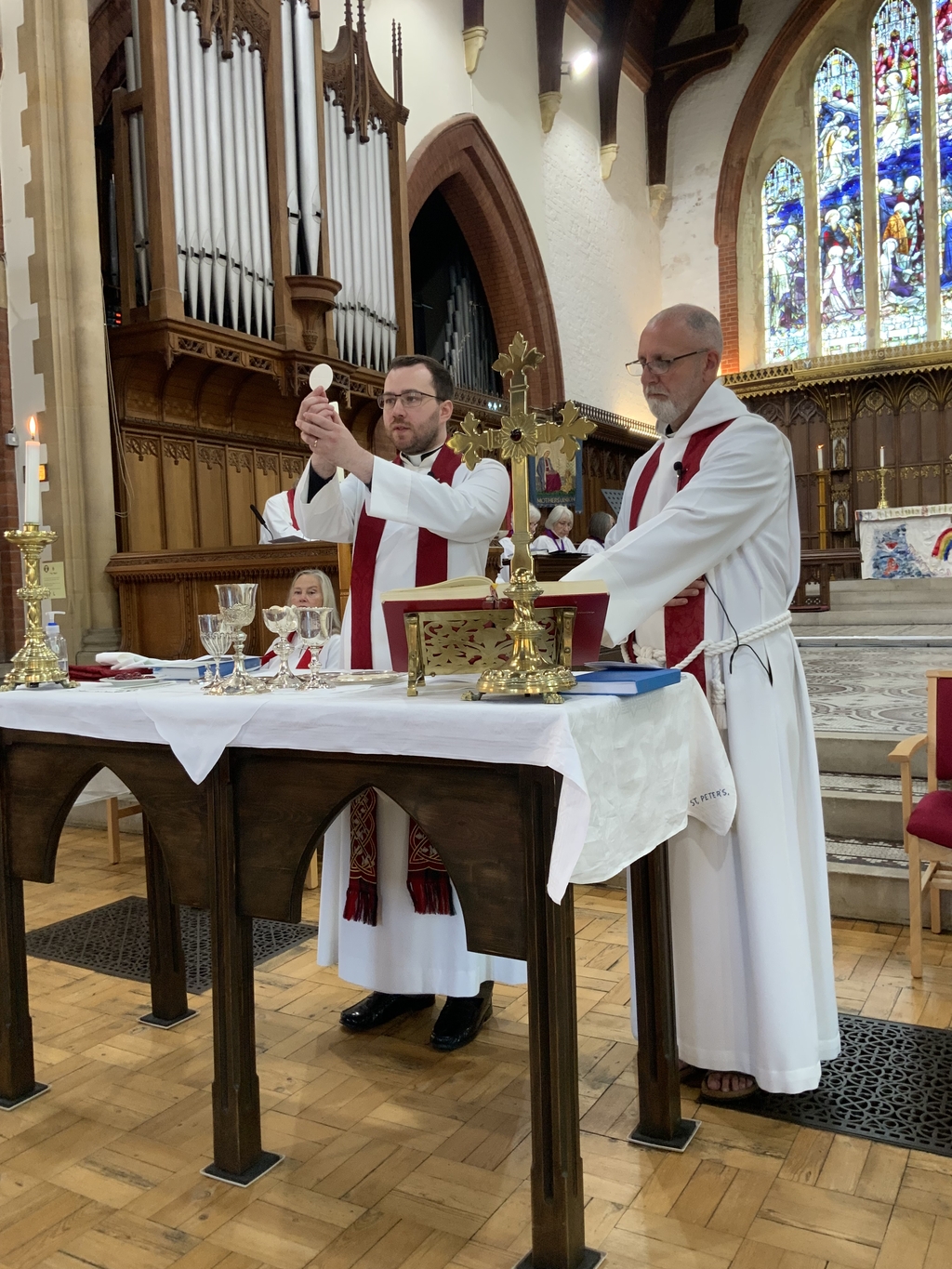I’m going to suggest something outrageous today!
Wait for it, it will come later.
First of all I’ll tell you three stories, events from my personal experience. See if you can spot any connection between them?
The first event was a coach holiday Chas and I took to Windermere in the Lake District, the first time we’d ever been there. The hotel was by the lake. We were checked in and given rooms in an annexe at the back of the hotel. The rooms were rather shabby, to be honest, but we didn’t make a fuss. The holiday included the meals. When it was time for the evening meal we found that there were trestle tables set up in a separate room for those on the coach trip. This was adjacent to the dining hall. The other guests had separate tables with clean linen and waiters attending to their every need. The staff treated us differently. When it came to serving coffee the waiter leaned on my shoulder to slop it into the cup.
The second event was when I worked in some council offices. A royal prince was coming for a visit. The best china appeared from nowhere - and I was surprised to find that the grimy ladies’ loos had been cleaned, and painted!
The third event concerned a member of a club I attended. Not only did she contribute fully to everything the club offered, cheerfully and with a great personality, but also she was a wheelchair user. She’d been born with a disability and yet here she was living an independent life, driving herself everywhere and studying alongside everyone else. One day someone told her how much they admired her for this. She was offended.
What do these three events have in common? They’re all examples of how we give ourselves and other people status. You might recall a comedy sketch about the class system in which an upper class chap looks down on those in the middle and working classes, the middle class man looks up to him while looking down on the working class fellow, who says he knows his place and looks up to both of them.
It’s not only class that we use to sift other people into those we look up to and those we look down upon - and we all do it. The list is long. It includes moral standards, education, race, health and physical abilities, culture, wealth, political allegiance, perceived intelligence, age, dress and appearance, gender, accidents of birth, the work we do, where we live, our life choices, even how we travel!
Have you heard the expression ‘loser cruiser’ used by some for those who take the bus? Or ‘down and outs’ for people who are homeless? All kinds of names are banded around for groups of people considered ‘less than’ us, who are often treated with disrespect, or given inferior service. Those we look up to are usually given more respect.
Can any of you relate with how it felt to be treated as ‘less than’ by the staff in the hotel?
Do you too wonder why the loos in the offices were considered to be good enough for us, but not for the prince who was coming?
Does it surprise you to learn that the lady in the wheelchair was offended when she found out that some people admired her because of her independence? To her it meant that they considered her to be ‘less than’ them simply because of an accident of birth. No offence was meant, quite the opposite, but it was taken. I also recall the words of a blind lady I knew, who said that she was tired of people feeling sorry for her.
All kinds of people enjoy Monday Cuppa in the hall each week. It’s there for everyone. We love it that residents from local homes for people with mental health issues are able to enjoy the company of others in the community, so that their social circle is not confined only to fellow residents. It’s enriching, we all gain from the experience of being with other people, treating each other as equals. We don’t look down upon or up to anyone who turns up. If a royal prince arrived, he would be offered a mug of tea and a scone and the same toilet facilities as everyone else. Whether he dressed up or dressed down would make no difference.
Is it outrageous to suggest that we treat all human beings as being equal to us? Does it mean lowering ourselves in our own eyes, to say that we’re not superior to homeless people, to criminals, to those who are disabled? Wouldn’t it be a good thing to do that, if it meant that we caused no further offence to people tired of being treated as ‘less than’ for whatever reason?
Can we do it? It’s not easy! Our own egos may keep trying to raise our status against that of other people! But if we know ourselves as valuable loved family members, just as we are, in God’s eyes we don’t need to compare ourselves with others - rather we can look to and accept our own strengths and weaknesses, and do our best to follow Jesus, who gave himself the lowest status of all when he was crucified outside of the city walls.
Jesus was certainly being outrageous in our gospel story! Here was he, an itinerant, telling a leader of the Pharisees - a religious leader well versed in the scriptures - to follow the wisdom of Solomon as written in the Proverbs!
As ever, Jesus turns everything on its head. He went on to tell the people to invite all those they look down upon not only to tea but to a banquet! To give them the best food, the highest place at table. No ‘that will do for them’ here! And to put themselves at the lowest place of all at the table!
Outrageous! The Pharisees gave themselves status above others at the time. They didn’t like this message at all! Do we?
‘Let mutual love continue’ said the writer of Hebrews. ‘Do not neglect to show hospitality to strangers... remember the people in prison...’ (Hebrews 13:1-3)
I suggest that we all take the time to ponder upon this, because it affects every single one of us. I challenge you to consider whether you treat some people as ‘less than’ you, and not to give yourself status above other people, as Jesus suggested. Humility doesn’t mean cowtowing to everyone, rather it implies treating people as you would like to be treated, with respect and dignity, whoever they are, as a loved brother or sister. This, interestingly, is at the heart of our message in the church that safeguarding is for us all to take seriously.
We might be inspired by the talents or wisdom of someone from time to time, and of course we can admire those traits in them. We also need the gifts of leadership and management in our society, and so there will always be power imbalances. But where there is status, it’s not something given to oneself, and there’s responsibility connected with it. The more we’re given, the more is expected of us. (Luke 12:48)
‘For all those who exalt themselves will be humbled, and those who humble themselves will be exalted’ said Jesus. (Luke 14:11)
Following Jesus is truly outrageous!
Love. Have no fear. Do good. Be humble. We can do this.
Amen.
Julie Rubidge, Lay Minister











